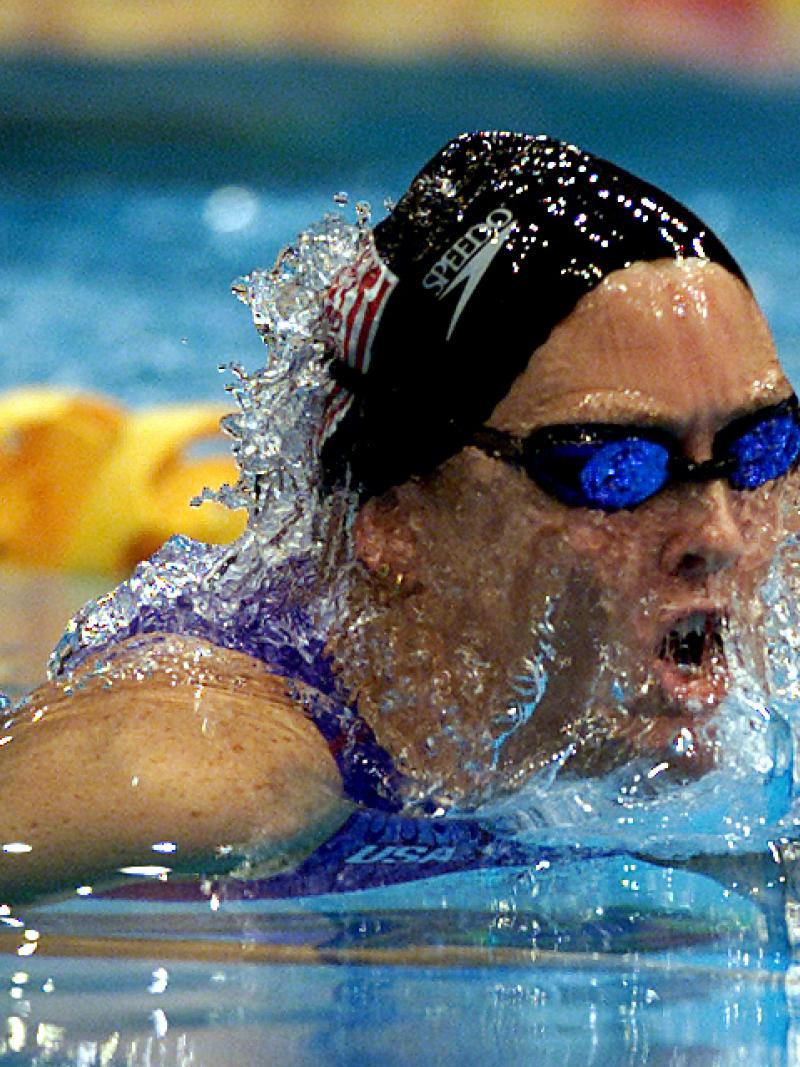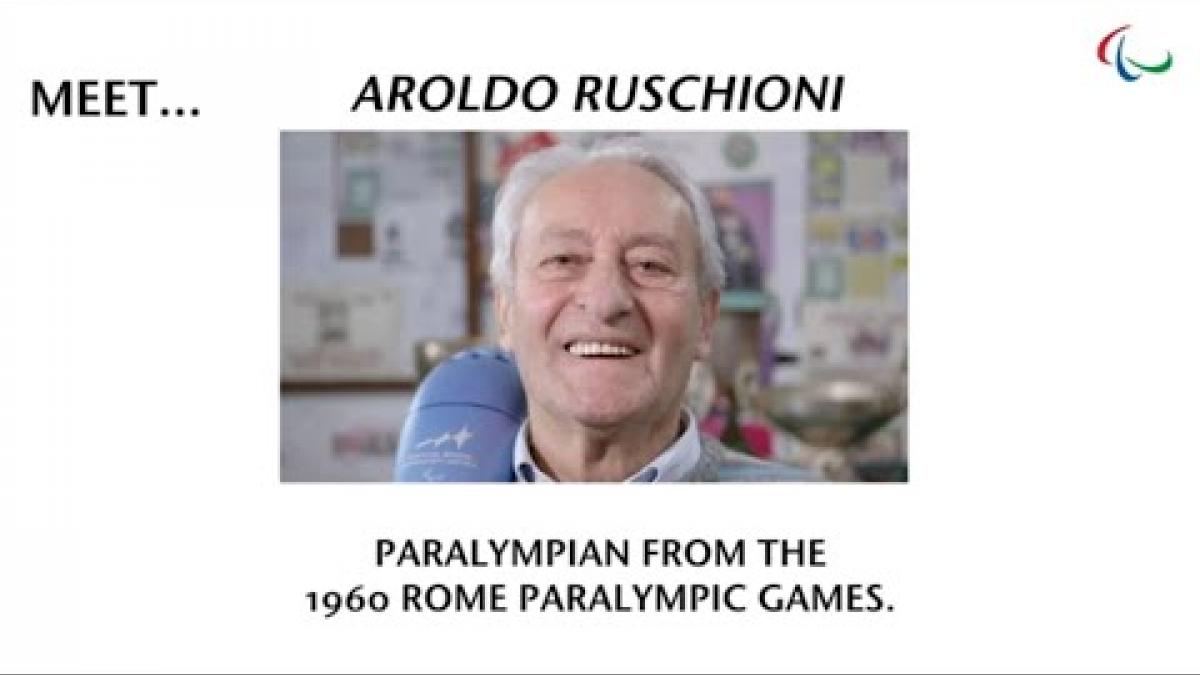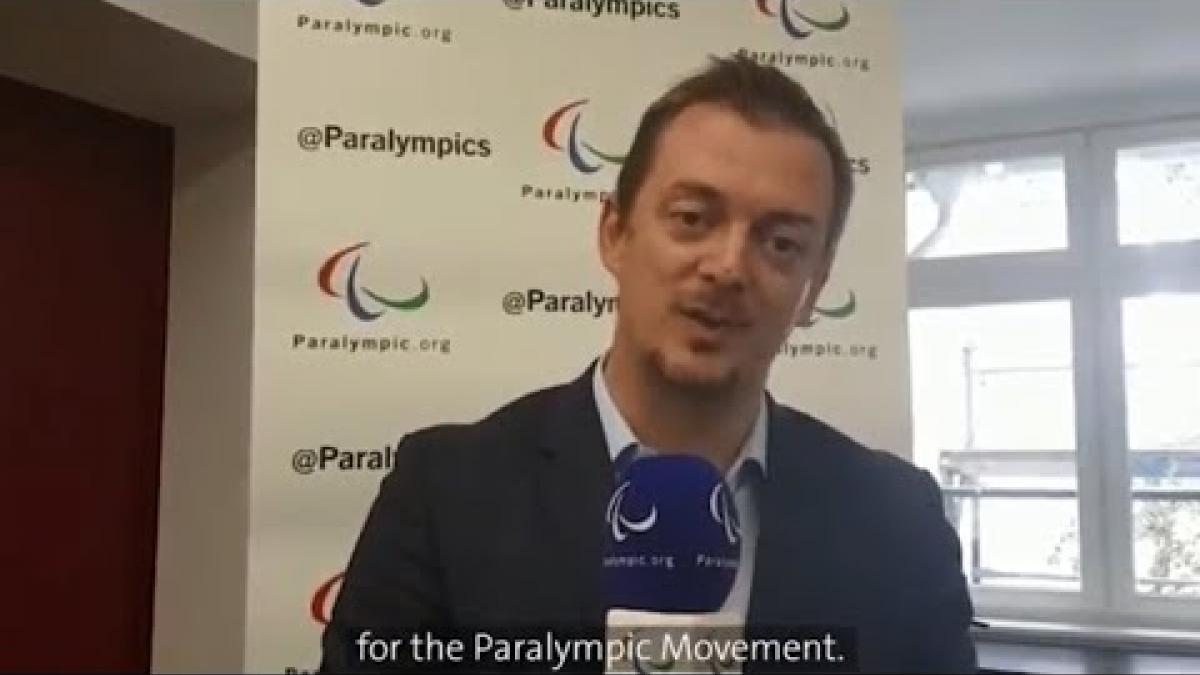Stoke Mandeville 70: The lasting legacy
Sir Ludwig Guttmann’s daughter reflects on father’s accomplishments 29 Jul 2018"I used to help pulling the arrows out of the archery butts and picking up the ball during table tennis matches. Also at the last day-party I handed round trays of drinks including a great deal of beer! Not done in modern times!"
The Paralympic Games have come a long way since the Stoke Mandeville Games of 29 July 1948 to become one of the world’s biggest sporting events.
There are few people who can truly and accurately describe their humble origins better than Eva Loeffler, daughter of the founder of the Paralympic Movement Sir Ludwig Guttmann.
As we mark the 70th anniversary of Stoke Mandeville, which later became the Paralympic Games, Loeffler spoke to paralympic.org about her father’s achievements.
Fleeing the Nazis
She was six years old when her family fled to England from Nazi Germany. It was not an easy transition for Loeffler.
“I remember very little [of my life in Germany]. I do remember my mother taking me to see the synagogue where we used to go and it had been completely burnt down, just some blackened brickwork arches standing.
“I remember the feeling of tension and fear at the time and when we came to England I was quite scared and hated to be separated from my mother. I used to cry a lot. Even as a small child I picked up the fear and sadness felt by my parents.
“My parents insisted that we [Eva and her siblings] spoke English all the time and I found that difficult for the first weeks.”
As the Second World War concluded in 1945, Guttmann began to envision roadmaps for what he later called ‘Stoke Mandeville Games’, the direct ancestor of the Paralympic Games.
That first edition in 1948 involved 16 injured servicemen and women who took part in archery. In 1952, Dutch ex-servicemen joined the Movement and the International Stoke Mandeville Games were founded.
Experiencing the Games
As a teenager, Loeffler voluntarily helped Guttmann with the organisation.
“I remember the wonderful atmosphere. The athletes were paraplegics and used heavy wheelchairs and were accommodated mostly in the hospital or in a local school until accommodation was built in the ‘Olympic Village.’
“As a volunteer, I helped at the archery [in 1948] and table tennis [afterwards].
“In the early years it was almost totally run by volunteers. I used to help pulling the arrows out of the archery butts and picking up the ball during table tennis matches. Also at the last day-party I handed round trays of drinks including a great deal of beer! Not done in modern times!
“Later on, in 1956/7, when I had finished my training as a physiotherapist I worked at Stoke Mandeville for a short time.”
Legacy for London 2012
Almost six decades later, Loeffler’s invaluable help during the first years of the Movement was rewarded as she was asked to be the Paralympic Village Mayor at London 2012.
“It was a wonderful experience. My husband and I stayed in an apartment in the Village for three weeks. As the teams arrived they were welcomed by me at a colourful and memorable ceremony in the central square of the Village.
“I visited many of the teams, talked to many guests, and presented badges to the superb volunteer force who worked so hard to make the Games such a success. I was involved in medal presentations in the various sites of the Games and gave many TV and radio interviews.
“I was one of the Paralympic torch bearers and carried the first leg on its way from the Stoke Mandeville Sports Stadium to the Olympic Stadium. Altogether it was a fantastic and very moving time for me and one I will never forget.”








